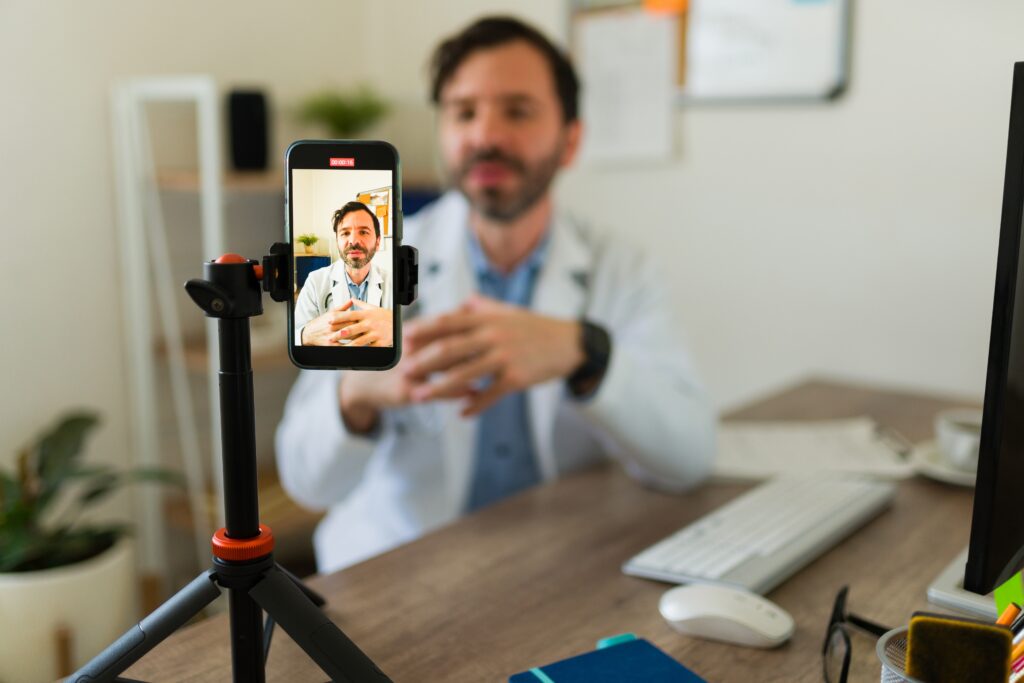Social media algorithms reward engagement, but chasing likes can cost doctors dearly, writes Dr Maria Li.
In 2025, more doctors than ever are using social media. While most of us start with the right intentions, many unknowingly fall under the influence of the algorithm — sometimes in ways that subtly erode our professionalism.
While there’s no rulebook prescribing how doctors should use social media, Ahpra’s social media guidelines make it clear that our online conduct can have regulatory consequences. Even when it doesn’t, our professional reputation is still at stake.
That’s why understanding not just the rules, but the principles behind social media use is essential for every doctor with an online presence.
Case study: Luke*
Luke was a registrar who posted light-hearted content on Instagram about subspecialty training. One day, an off-the-cuff video venting about frustrating patients went unexpectedly viral. Colleagues found it relatable, and many validated his sentiment in the comments.
Encouraged by the response, Luke leaned in. His next videos were even bolder — mocking patient behaviours under the guise of humour. As he came across similar content from larger accounts, he began modelling his posts on theirs. His following grew rapidly.
But the visibility came at a cost. Months later, several of Luke’s videos were reported to his employer, who found them deeply unprofessional. He was stood down pending a formal investigation.

How social media hijacks our brain
Social media may look like harmless self-expression, but it’s a business model designed to exploit our psychology. The more engaging our content, the longer users stay — and the more ads they see. That’s how social platforms make their money.
How does the algorithm shape our behaviour? Each like, share, comment or follow triggers a dopamine release — the neurotransmitter involved in reward, pleasure and addiction. Platforms reinforce this by displaying engagement metrics and flooding our feeds with similar high performing content, subtly steering us towards what’s trending.
Over time, it is easy to slip into chasing validation — often without us realising.
What kind of content gets the most engagement?
Knutson and colleagues at Stanford analysed 30 million social media posts and found that content expressing strong negativity or inducing high emotional arousal was far more likely to go viral. In short: emotional impact outperforms nuance.
When our brains are rewarded for producing provocative content, it’s no surprise that many doctor-creators begin drifting into click-seeking territory.
Case study: Ava*
Ava was a surgeon with a sizeable following on TikTok. She started by sharing educational content, but over time noticed that controversial topics — such as sex, inappropriate humour and medical horror stories — drew the most engagement. So, she doubled down. The more provocative her content, the more her following exploded.
Then something else happened. Professional collaborations dried up. Organisations that once supported her went silent. She was asked to step down from a hospital committee, with her online persona cited as the reason.
Ava had started with good intentions. But under the quiet pull of the algorithm, she lost the professional credibility she had spent years building.
How to engage
Ahpra’s position is clear: practitioners are entitled to freedom of expression on social media, but are expected to conduct themselves in a way that maintains the public’s confidence in the profession. Unprofessional behaviour online can be — and has been — the catalyst for regulatory scrutiny.
If at this point, you’re wondering whether it’s safer to log off entirely — that’s not necessary. In 2025, avoiding social media entirely isn’t practical. Furthermore, doctors have an important role in online conversations, especially in a landscape flooded with health misinformation. The challenge isn’t whether to post — it’s how to post.
Here are some points to consider:
- Post with purpose
Be intentional about why you’re on social media. For most doctors, the goal is to build credibility. Before you post, ask yourself: Does this align with my purpose? What does this say about me?
Balanced, thoughtful posts may not go viral — but if fame was never the goal, that’s irrelevant. Credibility doesn’t shout. It’s built slowly — and it endures long after popularity fades.
- Apply the “TV test”
Ask yourself:
- “Would I say this in a TV interview?”
- “Would I be happy for this content to resurface in five years in front of an employer, stripped of context?”
- Edit your feed
Your feed should reflect your judgement, not your stream of consciousness. Not every opinion or hot take needs to be aired. The quality of your feed is determined as much by what you leave out, as what you put in.
- Seek feedback
If you are unsure, ask someone who will be honest with you — even if it stings. Your Medical Defence Organisation is always a good acid test.
- Trust your unease
If a piece of content feels inappropriate — even if you can’t explain why — trust that instinct. If it doesn’t sit right with you, it likely won’t with others either.
The final word
Doctors on social media are more than content creators — our credibility is our currency.
Likes and shares are not peer review. Content that performs well doesn’t always reflect well on us.
Popularity is fleeting. Respect endures — but only if we protect it.
*Luke and Ava are fictional, based on real examples of online behaviour.
You can read part 1 of this series here. Stay tuned for future articles in this series.
Dr Maria Li is a general practitioner, a member of the World Health Organization’s Fides network of social media health care influencers, and the host and producer of The Safe Practice Podcast.
The statements or opinions expressed in this article reflect the views of the authors and do not necessarily represent the official policy of the AMA, the MJA or InSight+ unless so stated.
Subscribe to the free InSight+ weekly newsletter here. It is available to all readers, not just registered medical practitioners.
If you would like to submit an article for consideration, send a Word version to mjainsight-editor@ampco.com.au.

 more_vert
more_vert
The problem with the current generation is that they think social media is the answer to everything, and yet the reality is the complete opposite.
Many people just don’t realize how detrimental their posts can be. It’s notoriously difficult to regulate and many netizens under the cloak of anonymity will criticize relentlessly. It’s a bit of a minefield.